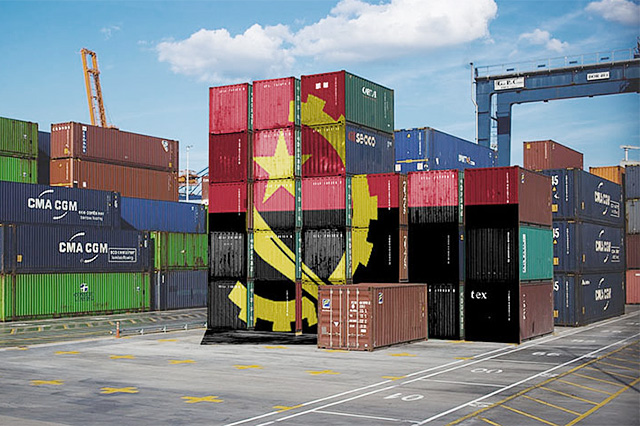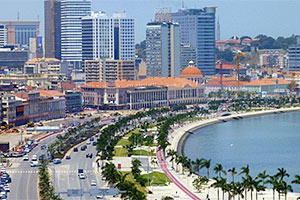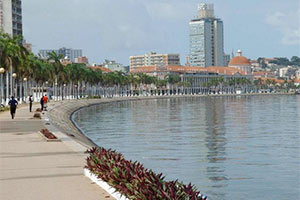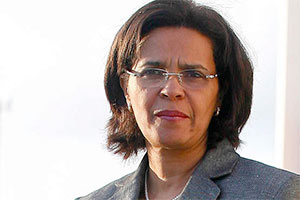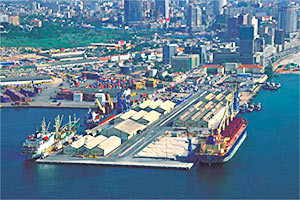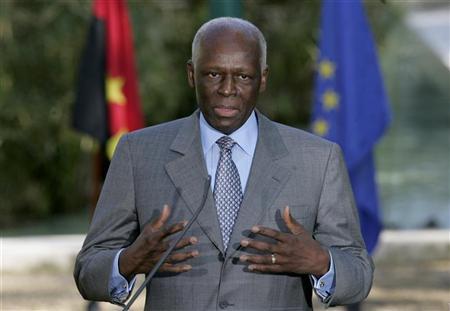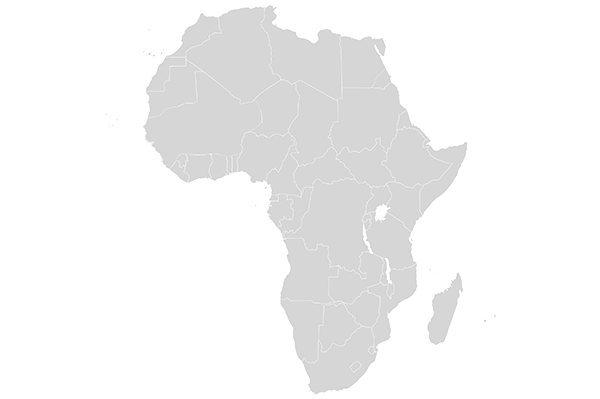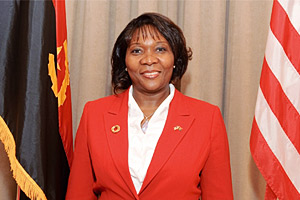Angola Added To List of AGOA Countries
While market access is the drumbeat of the African Growth and Opportunity Act (AGOA), the capacity to trade competitively in the U.S. and global marketplace is really the key to making this trade legislation work for Africa, says Stephen Lande, president of Manchester Trade Ltd.
In a December 8 address to the 2003 Private Sector Session of the Third AGOA Forum, Lande, an international trade adviser said, "We spend so much time...talking about market access opportunities...but to put it very simply, unless you have world class, competitive production that can take advantage of these opportunities, it (access) will come to naught."
As a way to ramp-up and become globally competitive, Lande promoted the importance of regional trade communities. It is through regional trade communities and agreements that developing nations can work their way up to trade competitively in the U.S. and global marketplace, he said.
"You don't go simply from a small market...into the world market," he counseled his audience of African ministers, ambassadors, executives and trade specialists who were gathered in Washington. "You need an intermediate step and that is provided by regional economic communities because they group countries together. Such an arrangement," he said, "gives countries, entrepreneurs and workers the opportunity to begin to approach the economies of scale that are necessary for export."
If you are going to look at AGOA, he said, you have to view it in the context of the World Trade Organization and free trade agreements (FTA) operating in the context of the regional economic communities.
Lande went on to explain the importance of understanding the relationship between the American business community and the United States government and how they often interact in the formulation of U.S. trade policy.
U.S. business and its trade groups are largely organized into three categories, he said: global, sectoral and geographic.
"By far the most important business organizations in terms of the overall formulation of U.S. trade policy are the global organizations" he said, which include the U.S. Chamber of Commerce, the National Association of Manufacturers (NAM), the National Foreign Trade Council, the Emergency Committee for American Trade (ECAT), the Business Roundtable and the U.S. Council for International Business.
"These are the groups (along with the Farm Bureau on agricultural topics) that basically set the pattern for the generic U.S. policy approaches -- whether they are toward the regional agreements...the bilateral free trade agreements or the WTO," he said.
A second group organized by trade sector, he explained, also exerts influence in the policy formulation process. Sectoral groups such as the American Textile Institute, National Cotton Council and the American Iron and Steel Institute are "usually considered to be against free trade initiatives," he said, fearing free trade will adversely impact their trade sector.
The last group, Lande identified as "geographic" such as the Caribbean Central American Action group and the Corporate Council on Africa (CCA), which both lobby for expanded private sector trade and investment flows between their respective regions and the United States. Also functioning in this "geographic" area are ad-hoc groups, he said, such as the AGOA III Coalition run by former assistant U.S. Trade Representative for Africa Rosa Whitaker, which is now seeking a further expansion of the historic AGOA trade legislation.
"Each issue that is under consideration in the United States, whether it be multilateral, bilateral or preferential level usually has various groups that begin to play a role" in the formulation of U.S. trade policy, he explained. As an example, he said, the primary lobbying for AGOA III is being done by the Corporate Council on Africa (CCA) and the AGOA III Coalition.
Lande then went on to frankly and realistically assess the importance of AGOA and its link to the U.S. business community.
"It is important to some groups," he acknowledged, speaking of AGOA and its pending expansion and enhancement as AGOA III. "But to the big groups frankly, it is a little punctuation mark, an asterisk.
"If you believe in motherhood, fatherhood, you believe in AGOA, but how much political capital will you use, how many donations will you make in campaigns" to make the expanded AGOA III legislation become a reality? "Not that much," he said, "unless you are a specific group (that urgently needs the legislation) -- that is why the Corporate Council is important."
Lande said besides the obvious role of Congress in the legislative branch passing the AGOA legislation, there are three key areas in the executive branch of U.S. government to focus on in terms of trying to influence and generate AGOA trade policy. The major player, according to Lande, is the Office of the United States Trade Representative (USTR), which works together with other U.S. departments such as State, Commerce, Labor and Treasury to formulate the government's position on trade issues.
While the USTR does not fit easily into any organizational charts, Lande said, it is important to the White House because it focuses on trade issues. In that regard, he said, political specialists in the White House will assess AGOA and the level of attention it should deserve from the executive branch.
A second official part of the foreign affairs power structure in the White House is the National Security Council, he said, which will offer its assessment.
A third key area is the political wing in the White House, he said. "Every administration has to have a group that assures that it is reelected and that the administration sticks to the rules or whatever its philosophy is. Somebody has to coordinate this" and review AGOA trade legislation from a political perspective.
Lande said five basic factors drive U.S. trade policy: Textiles, agriculture, the continuation of preferences, unfair trade practices called dumping and capacity building.
Capacity building is the most important of the five issues for African and other developing countries, he stressed. "You must have capacity building so that you have the products you can trade." Capacity building is most important, he said, because if you don't have products to export, everything goes out the window.
Lande called on the World Bank and International Monetary Fund to provide greater assistance to developing world countries that are trying to function and prosper under the WTO system.
"I go to WTO meetings," Lande recalled. "The negotiators work very hard. I always see the World Bank and IMF there. They always give a very good speech in the beginning and then I don't see them work very hard because they are not part of the process. They are the people that should be sitting with you now," helping developing countries to prosper under the WTO trade structure.
(The Washington File is a product of the Bureau of International Information Programs, U.S. Department of State. Web site: http://usinfo.state.gov)


